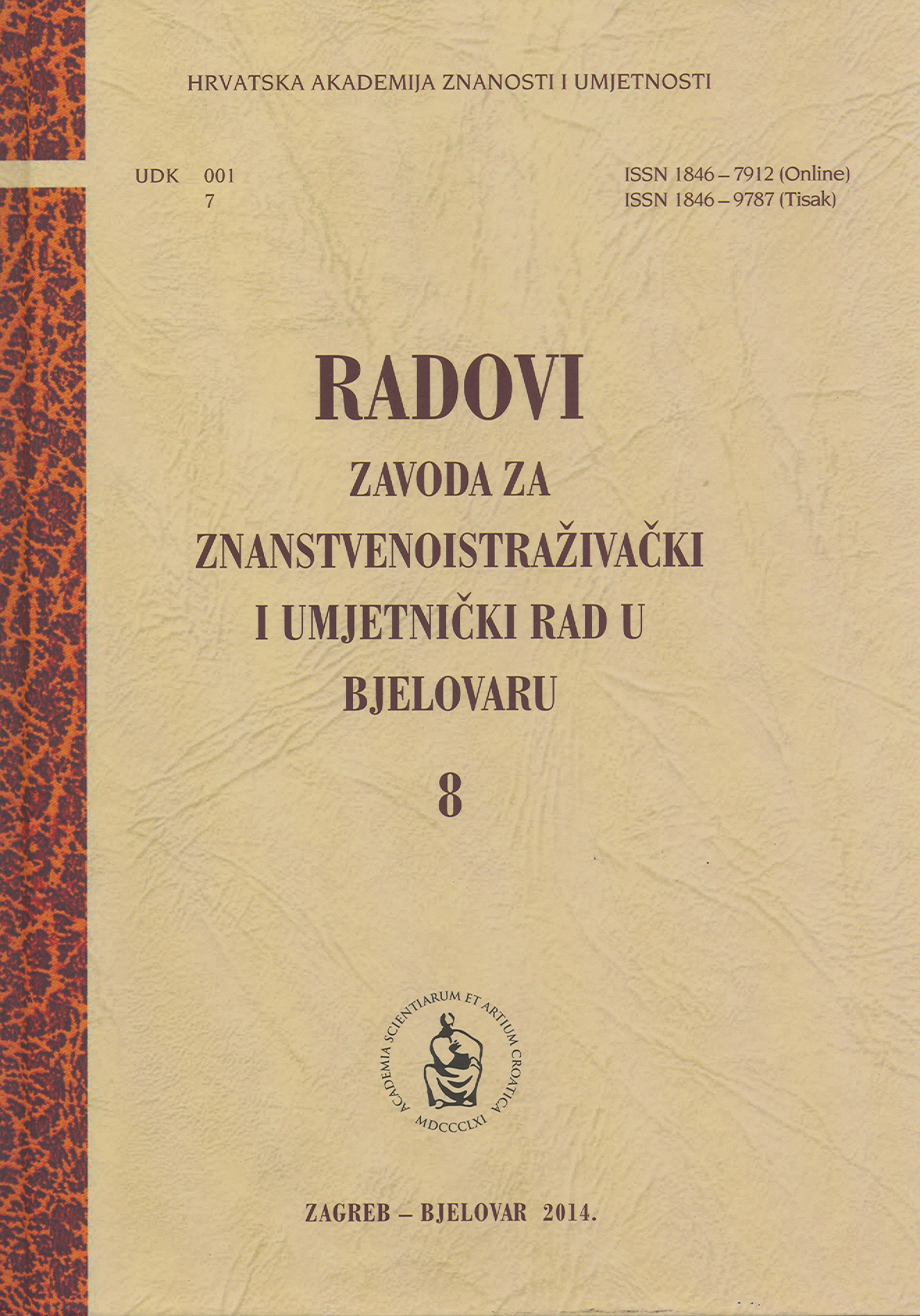Bjelovarski književni i kulturni prostor (1991. - 2000.) - pjesnički rukopis ratnog i poratnog pisma
Bjelovar Literary and Cultural Circle (1991–2000) – Wartime and Post-War Poetic Writings
Author(s): Ilija PejićSubject(s): History, Cultural history, Local History / Microhistory, Military history, Political history, Recent History (1900 till today), Croatian Literature, Transformation Period (1990 - 2010), Wars in Jugoslavia
Published by: Hrvatska akademija znanosti i umjetnosti - Zavod za znanstvenoistraživački i umjetnički rad u Bjelovaru
Keywords: Homeland War; transition; Bjelovar literary and cultural circle; wartime writings; wartime and post-war poetic writings (1991–2000);
Summary/Abstract: In the first part, this study offers a reconstruction of the cultural life of Bjelovar and its surroundings – the Bjelovar literary and cultural circle (Bjelovar, Čazma, Đurđevac, Daruvar, Garešnica, Grubišno Polje) – by presenting portraits of writers, painters, musicians and educators; as well as by exhibitions, concerts, the work of associations and institutions; and a review of the publishing activity (newspapers, magazines, journals, books, monographs, etc.). The war havoc and the transitional deconstruction of the symbolic city capital (heritage, space) caused by globalisation are the two key elements that have formed not only wartime writings, but also the context in (the connection with) which they were created. The second part of the study is a presentation of wartime (1991–1995) and postwar (1996–2000) poetic writings in the Bjelovar literary and cultural circle, incorporated in poems and lyrical writings by numerous authors (V. Bažant, Ž. Sabol, K. Kovrlija, B. Kreštan, S. Frajtić, M. Mađerić, V. Vargović, I. Pejić, B. Jelušić, B. Delić, A. Perše Deškin, M. Vidović, K. Blaha, A. S. Prević, K. Prević, Z. Satrapa, L. Erl Luketa, D. Horvat Zácskai, M. Borovac, etc.). It forms a tribute to a better comprehension of Croatian wartime writings. The emphasis has been put on poetry – the poem and its structure as a humanistic analysis of the indifferent world, the understanding of the meaning of suffering and victim, self-perception and the perception of the other party – the enemy, with strong belief in the good and the victory thereof, as well as on the analysis of heritage and its endurance when facing the forces of destruction (wounded city, wounded land, etc.). The need for the as authentic as possible witnessing of the “severe reality”, wartime events, and memory in general determined the frequency of the genre of autobiographical/memoir literature, and the stylistic specificity of wartime writing as a pronouncedly documentary, factual/descriptive (stating the date and venue of the text), and in tone and directness similar to folk story telling – equally in prose, dramatic, and lyrical texts.
Journal: Radovi Zavoda za znanstvenoistraživački i umjetnički rad u Bjelovaru
- Issue Year: 2014
- Issue No: 8
- Page Range: 373-412
- Page Count: 40
- Language: Croatian

